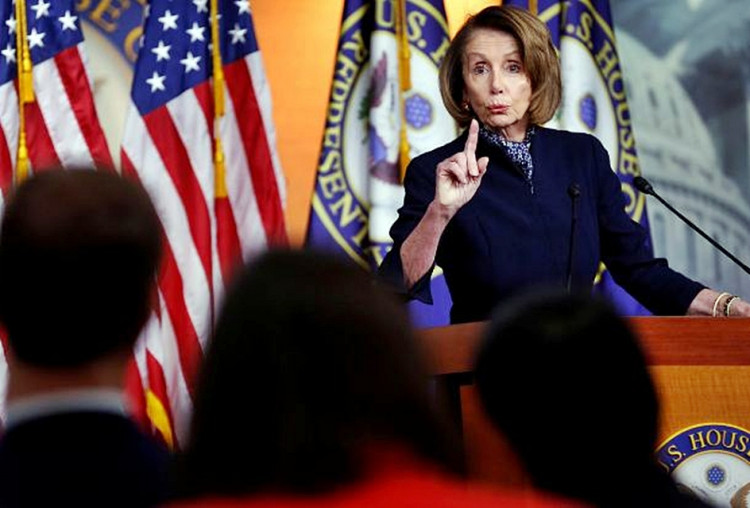The ponderous process Facebook relies on to remove fake content (text, videos, and photos) is to blame for the social media site's refusal to remove a doctored video meant to disgrace House Minority Leader Nancy Pelosi (D-CA).
The patently fake video released May 22 by a right-wing group called Politics WatchDog was intentionally slowed down to create the impression Pelosi was slurring and disoriented while she spoke.
Analysts noted it wasn't until 32 hours later that Facebook began reacting the video after a fact-check from one Facebook partner, LeadStories. Another Facebook partner Politifact didn't post its own fact-check until May 24. President Donald Trump later shared the fake video on Twitter.
Rep. Will Hurd (R-TX) slammed Trump for sharing the video, saying no one, including Trump, should "disseminate information that you know is ultimately doctored."
The damage to Pelosi, who is engaged in a nasty war of words with president Donald Trump, had been done, however, since other right-wing sites had re-posted the video. LeadStories said it had discovered some 17 distinct copies of the altered video on Facebook, YouTube, and Twitter.
The fake Pelosi video remains available on Facebook despite a multitude of complaints. Facebook defended its non-action saying the video doesn't violate its community standards. There is no rule on Facebook saying content posted there must be true or accurate.
The video now has a message indicating the post has been flagged and directing users to multiple fact-checks. Facebook defended this half-measure.
"I think the suggestion here is that we haven't taken action, and that's not right," said Monika Bickert, vice president for product policy and counterterrorism. "We have acted ... anybody who is seeing this video in News Feed, anyone who is going to share it with somebody else, anybody who has shared it in the past -- they are being alerted that this video is false."
Analysts said the furor created by the manipulated Pelosi video exhibited the limits of Facebook's third-party fact-checking system in its battle against fake news that continues to damage its already battered reputation. Facebook has enlisted the help of independent organizations, which have since become its first and main line of defense against misinformation.
Facebook now works only with fact-checkers that are part of the International Fact-Checking Network (IFCN). This global coalition of vetted fact-checkers was founded by the Poynter Institute for Media Studies, a non-profit and respected journalism organization based in Florida.
Other members of the IFCN include The Washington Post's fact-checking arm, the Associated Press and Factcheck.org.
Facebook's hands-off approach to weeding out fake news and it's delegating this role to IFCN is meant to dismiss charges of bias and partiality. This approach, however, slows down reaction time as can be seen in the Pelosi video case.
The vetting process means that when one of Facebook's fact-checking partners rates a post or video as false on the platform, it automatically triggers a change in how Facebook's algorithm handles that content.
This action means the content in question will appear less frequently in users' news feeds. It also notifies Facebook users that share or have shared that content is false
"Once we publish (a fact-check), right away I go into the Facebook tool and I match the fact-check with the offending post," said Katie Sanders, managing editor of Politifact to CNN. "The way it's supposed to work is it's supposed to de-amplify the reach of the post."






